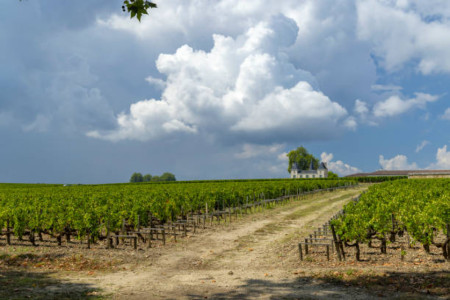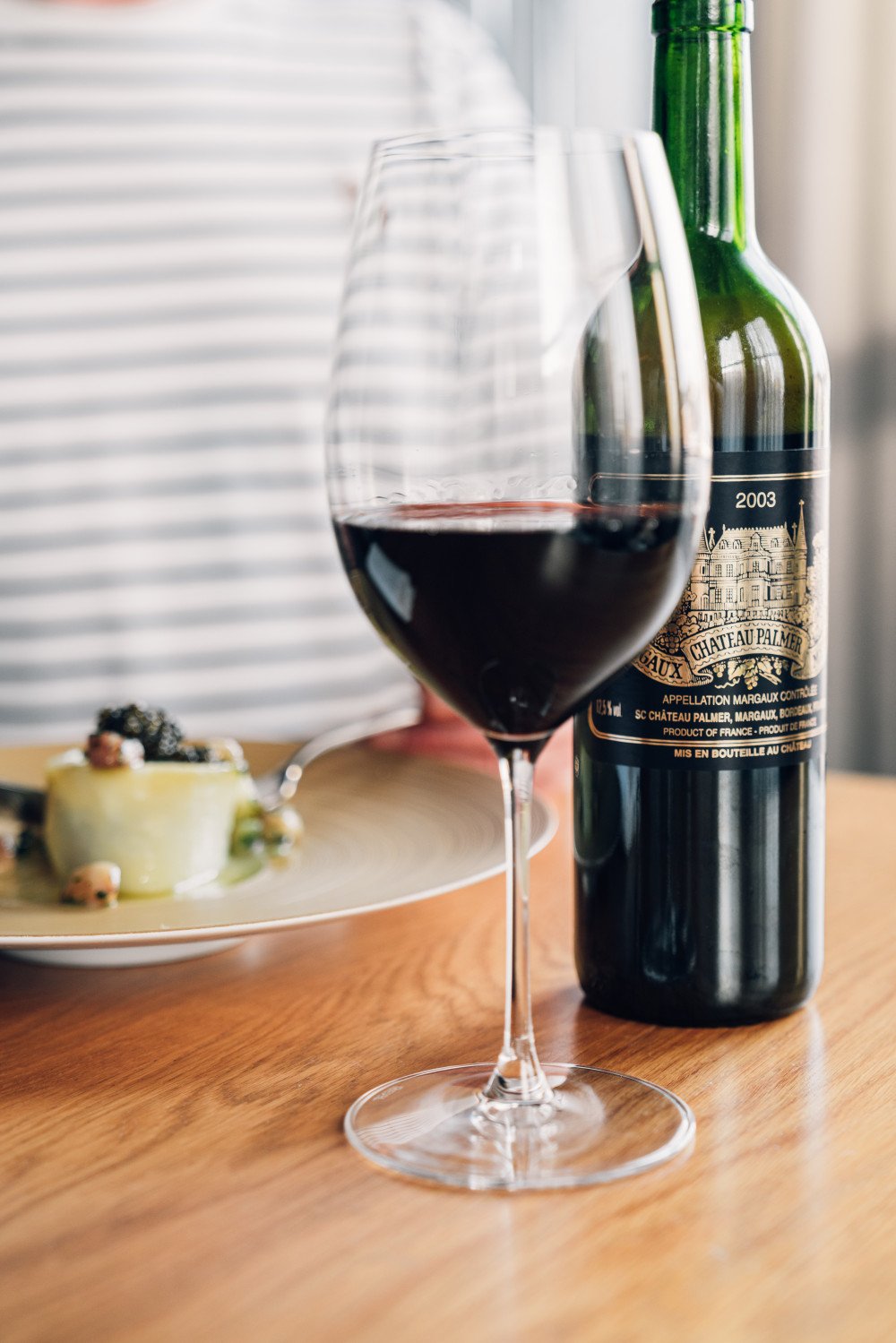Margaux
Margaux wines are full of elegance and depth. The region is situated on the left bank of the Gironde in the Medoc. It is renowned for its sophisticated red wines made from Cabernet Sauvignon. While red wines dominate, a small amount of dry white wine is produced from Sauvignon Blanc and Sémillon. With 21 wineries classified, Margaux has the most Grands Crus Classes in the Medoc.
The best wines from Margaux
Margaux wines are full of elegance and depth. The region is situated on the left bank of the Gironde in the Medoc. It is renowned for its sophisticated red wines made from Cabernet Sauvignon. The appellation was formally established in 1954, and it is known for its elegance and aromatic richness. While red wines dominate, a small amount of dry white wine is produced from Sauvignon Blanc and Sémillon. With 21wineries classified, Margaux has the most Grands Crus Classes in the Medoc.
There is one winery in particular whose name has become synonymous with the prestige of the Bordeaux appellation: Château Margaux. But this top wine-growing region has many other icons and timeless wines to discover.

Where exactly is the Margaux appellation?
Welcome to the left bank of Bordeaux – in the heart of the Médoc sub-region, to be precise. With around 1,500 hectares of vineyards, the Margaux appellation is located almost entirely in the south of the Médoc and encompasses the villages of Margaux-Cantenac, Arsac, Soussans and Labarde, all of which lie between the Atlantic Ocean and the Gironde. However, the names of the communes in the appellation are not as important as the wineries that are based here.
These are impressive, as Margaux is home to more than a third of all classified Médoc wineries. First and foremost, of course, is Château Margaux, which proudly bears the title of Premier Grand Cru. But Château Palmer, Château Cantenac Brown, Château du Tertre and Château Giscours are also located here. For almost two centuries, they have all contributed to the extraordinary reputation of the Margaux appellation, which extends far beyond the borders of France and into the world.
Which grapes are grown in Margaux?
As is customary throughout Bordeaux, the classic red grape varieties Cabernet Sauvignon, Merlot, Cabernet Franc and Petit Verdot dominate in Margaux. However, Cabernet Sauvignon is undoubtedly the main variety here, as the Margaux soils are simply ideal for this grape. Nevertheless, most Margaux wines are artful cuvées in which Cabernet Sauvignon forms the backbone, while Merlot brings soft fruit aromas and Petit Verdot and Cabernet Franc add complexity. In the past, Margaux also had a few vineyards planted with Malbec and Carmenère. However, these two grape varieties have now largely disappeared.
Although Margaux is best known for its elegant, complex and long-lived red wines, there are also some prestigious white wines, such as the Pavillon Blanc from Château Margaux. Here, as one would expect in Bordeaux, the two grapes Sauvignon Blanc and Sémillon are blended to create an exceptional cuvée.
Climate and soils in Margaux
Now we come to the heart of the success of Margaux wines! The climate and soil are indeed the two main reasons why these wines are so loved and appreciated around the world. The climate here, as everywhere on the left bank of Bordeaux, is strongly influenced by the sea, thanks to the proximity of the Atlantic Ocean. But there is also the proximity to the Gironde River, which has a very stabilising effect. In summer, it reflects the sun's rays and stores a great deal of heat. The river then gradually releases this heat, especially in autumn, which prolongs the ripening period for the grapes. The real highlight, however, are the forests that stretch between the Atlantic Ocean and the Gironde. They protect Margaux from extreme weather conditions such as hail. All this together ensures a very balanced climate in which grapes can ripen ideally.
The Margaux soils are no less important. Here we are dealing with a mosaic of gravel, sand, clay and limestone. Gravelly hills dominate, which are ideal for Cabernet Sauvignon. This soil offers perfect drainage, which is exactly what Cabernet Sauvignon needs to grow deep roots. The sandy and clay soils are ideal for Merlot and other varieties. Here, the grapes develop beautiful fruit notes. Which brings us straight to the next question...
Prominent Margaux Producers
The well-known Chateau Margaux (a First Growth) is located in this area. Other noteworthy estates include Chateau Palmer (a Third Growth and also a "Super Second") and Chateau Rauzan-Ségla (a "Super Second" Second Growth). Margaux owns more over one-third of all Classed Growths in the Medoc, with one First Growth, five Second Growths and ten Third Growths.
Wine producers
What does a Margaux wine taste like?
Of course, not all Margaux wines can be lumped together in terms of taste. The cuvées are too different for that. In general, however, it can be said that the red wines in particular are known for their elegance, finesse and aromatic depth. They often offer a bouquet of blackcurrants, plums and cherries, complemented by notes of cedar wood, tobacco and a subtle earthiness.
On the palate, they display a silky texture with well-integrated tannins and lively acidity. These characteristics make them more accessible in their youth than other Bordeaux wines, while still having the potential to age for decades. The wines are less powerful than those from Pauillac or Saint-Estèphe, but their sophistication makes them distinctive.
What food goes well with Margaux wines?
Let's be honest: when you have a wine of the calibre of Château Margaux in front of you and are able to enjoy it, please give it your undivided attention. No distractions! Because yes, tasting a wine like this is an experience you will never forget. That's exactly why it's worth enjoying such icons on their own. However, Margaux wines are generally fantastic accompaniments to food. They go well with beef in particular, from fine fillet to braised cuts. Lamb and game also complement the complex aromas of the wine. Truffle and porcini mushroom dishes are a real treat with mature Margaux wines, as they subtly enhance the tertiary aromas of the grapes. We would be delighted to help you find the perfect Margaux wine to accompany your meal. Simply contact us and discover the fascinating variety of wines from Margaux at Best of Wines!
Other regions



